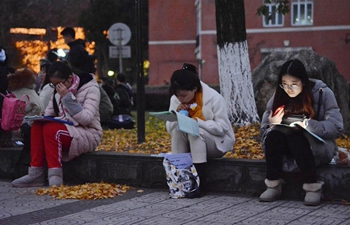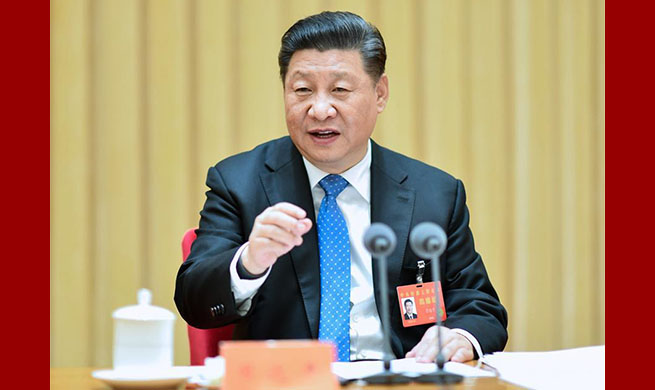MADRID, Dec. 22 (Xinhua) -- Improving confidence and political stability would boost Spain's economic growth, according to EAE Business School's finance professor Javier Rivas.
In an interview with Xinhua, Rivas assessed the evolution of the Spanish economy and the forecasts for 2019, noting that in 2018 the gross domestic product (GDP) has grown less, and that an improvement in confidence and political stability would boost economic growth.
The Bank of Spain predicted that the Spanish economy would grow by 2.5 percent in 2018, the lowest rate in the last four years. The institution revised down its economic forecast by 0.1 percent compared with the last prediction.
It did not revise the 2.2 percent growth for 2019, but revised down that of 2020 by 0.1 percent to 1.9 percent. If this forecast is confirmed, the Spanish economy will continue to slow down, after growing by 3.4 percent in 2015.
Professor Rivas also explained the factors that could have an impact on growth, such as the minority government of the socialist Pedro Sanchez, and a rise of tension in Catalonia in eastern Spain due to the separatist movement.
The situation of the Spanish government "is affecting investments" and hinders the approval of the 2019 general state budget.
"Failure to approve the budget can lower growth by between 0.1 percent and 0.2 percent, because it would delay the implementation of public investment," he said, adding that the situation "affects the markets".
On the other hand, Rivas stressed the importance of improving unemployment data. "The improvement of confidence can be achieved by encouraging employment data," he explained.
The latest data from the Inquest into the Active Population (EPA) of the third quarter of this year published by the National Institute of Statistics (INE) said the total number of unemployed people stood at 3.3 million, which is below the 6.2 million unemployed the country had in 2013.
Rivas considered that "(domestic) demand will continue growing at practically 3 percent," a factor that has contributed significantly to the country's growth in 2018. "External demand, however, has slowed down by 0.5 percent," he said.
Rivas believes that Spain would probably continue to grow above the average of other countries.
The world's economic growth would probably slow down next year and in that context, the professor noted, "it seems that Spain has more room to continue improving, because it has been one of the few countries that has not yet recovered the pre-crisis stock, investment, employment levels, so that's why there is a small margin for improvement."
Finally, as challenges for 2019, Rivas said Spain must face the imbalance of social security, the reduction of public debt, and meet the deficit target requested by Brussels as well as to continue boosting job creation, among others.
The debt of all public administrations hit a new record high in September this year at 1.17 trillion euros, representing 98.3 percent of GDP. The Community of Madrid is the region with the lowest debt, at 14.6 percent of GDP, compared with the average of 24.4 percent.
The high public debt and deficit are two of the big pending issues for Spain's budgetary stability. Spain will close 2018 with a predicted deficit close to 2.7 percent of GDP, he added.(1 euro is about 1.14 U.S. dollars)













